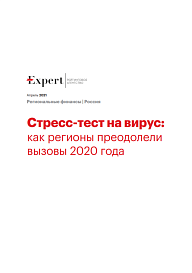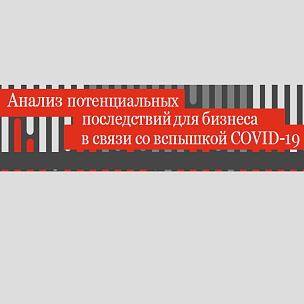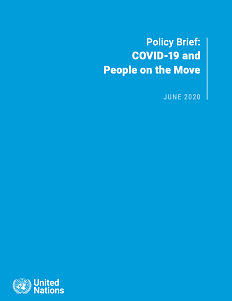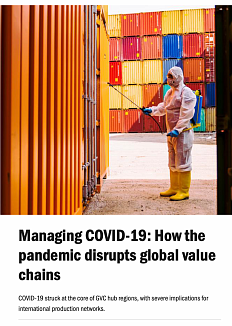The research, prepared by the Expert RA credit rating agency, analyzes how various Russian regions have managed to overcome the crisis caused by the 2021 coronavirus pandemic and provides forecasts for the future development of regional economies.
The Roscongress Foundation presents the salient points of the publication accompanied by fragments of broadcasts of relevant panel discussions from the business programme of international events held by the Roscongress Foundation.
Although the coronavirus infection had a negative impact on the development of most economic sectors in the regions, some sectors were able to maintain their position.
Other factors, in addition to the pandemic, that have had a negative impact on the regions’ economic health include falling oil prices and reduced oil production. According to the study, industrial production in the country also declined by 2.9%. This decline spread across 51 regions, with the sharpest decline observed in the Republic of Tuva (the industrial production index fell by 36.9% compared to 2019). However, three regions still managed to increase their industrial production by more than 20% even in the face of the pandemic: the Republic of North Ossetia-Alania, Tyumen Region and the Altai Republic.
It is worth noting that, despite the decline in the industrial sector, it proved more resilient than retail and services, whose turnover fell by 4.1% and 17.3%, respectively. The authors emphasize that 74 regions showed negative results in terms of retail turnover, while in the service sector this was the case in all regions.
Areas such as agriculture and construction are singled out. The agricultural sector was able to show growth in spite of the economic crisis thanks to agricultural support measures and the fact that it continued to operate even during the pandemic. The construction industry was able to maintain its position and even show growth of 0.1% compared to 2019 thanks to higher housing prices, as well as timely anti-crisis support measures such as the introduction of preferential mortgages and loan subsidies for developers.
Federal transfers helped the regions greatly during the pandemic.
The implementation of anti-crisis measures to combat the coronavirus consequences at federal and regional levels allowed to avoid catastrophic falls in regional performance, as well as increase spending of regional budgets. Expenses outstripped (+16.8% compared to 2019) the income growth (+10.8%).
It should be noted that deficit budgets were formed in 60 regions. At the same time, growth of tax and non-tax revenues in the revenue structure, along with the cumulative increase in uncompensated receipts, not only did not follow, there was a decline by 2.5% compared to 2019.
The study authors predicted that the level of debt at the end of the year would be at around 27% of tax and non-tax revenues. As a consequence, the resulting imbalance in regional budgets has led to a record increase in public debt: 47 regions had an increase in debt amid the events of 2020.
It is important to note that the regional budget in 2020 had a social focus (as in previous years): social expenses in 2020 increased by 24.9%, and 61% of all expenses was allocated to financing education, healthcare, social policy, culture, physical culture and sport. At the same time, the largest share was observed in North Caucasian Federal District, its constituent entities — the Republic of Ingushetia and the Chechen Republic, spend 81.2% and 80.4%, respectively, of their budgets on social expenditure. The lowest share is in Chukotka Autonomous District (27.1%), which has the largest share of expenses on housing and utilities, and Kaliningrad Region (35.2%).
The regional economies cannot be expected to fully recover in 2021.
The study notes that the economy will begin to recover from the pandemic crisis in 2021, but do not expect 2019 levels of growth. For example, the most affected sectors, such as retail and services, need more time to recover, as not all restrictive measures have yet been lifted. At the same time, the base material sector will begin to increase its volumes as a result of prices returning to last year’s levels.
It is noted that despite the slight increase in regions’ non-tax revenues, regional budgets will be affected by the economic recession. Thus, the regions will not be able to reduce government debt, and the financing of budget deficits and national projects will also require considerable borrowing.
At the same time, opportunities for constituent entities to raise money on the public market will increase due to the development of the ESG agenda, sustainable development instruments, green and social bonds. Because a large proportion of regional revenues are social in nature, social bonds enable regions to improve their borrowing conditions and secure financing, including for healthcare and employment, which were affected by the pandemic.
For more information, see the special sections of the Roscongress Foundation Information and Analytical System: StayHomeEconomy and COVID-19, dedicated to possible ways to stabilize the economy in a pandemic; as well as Regions of Russia, Regional Policy, which contain materials about regional development.






